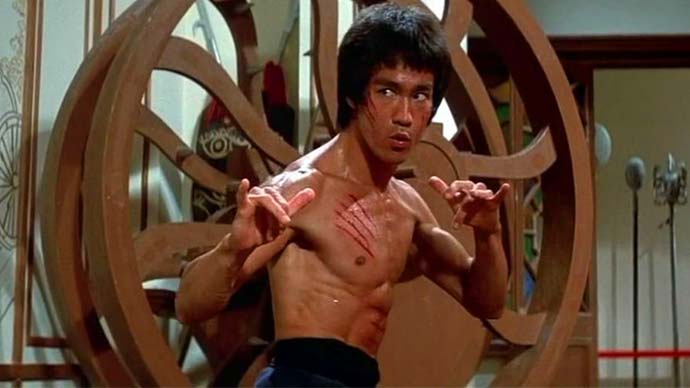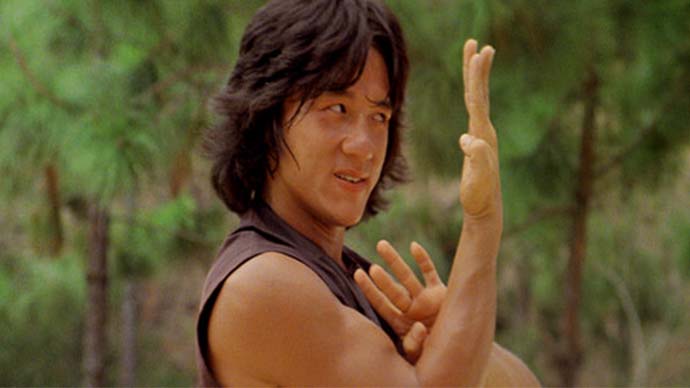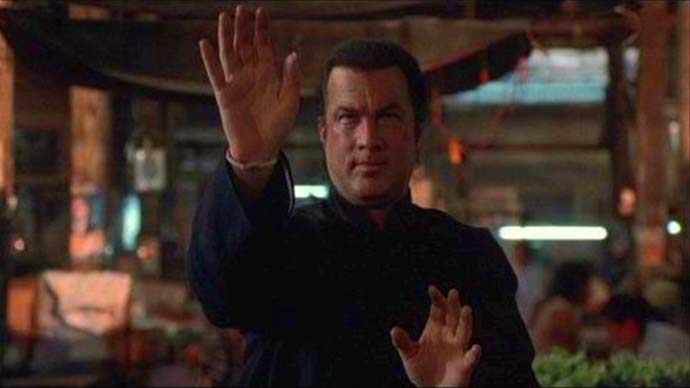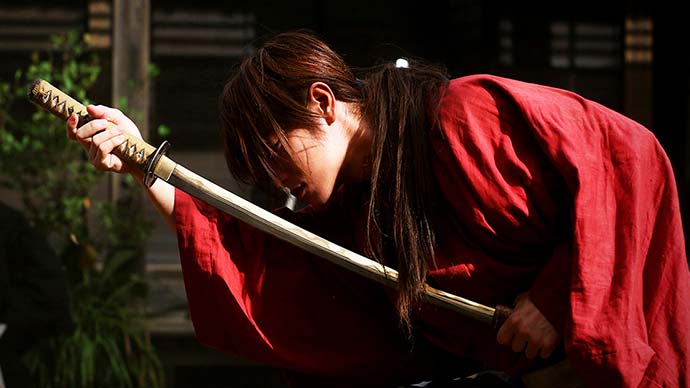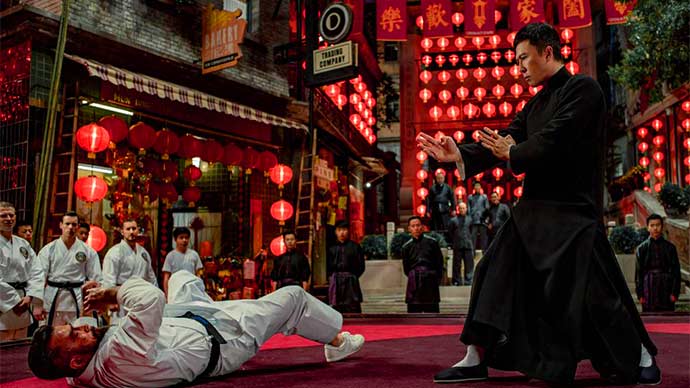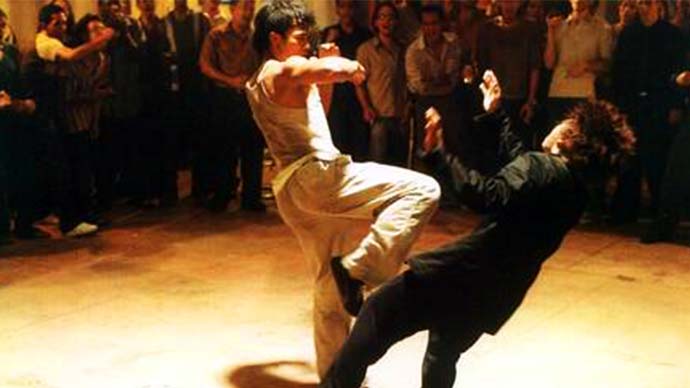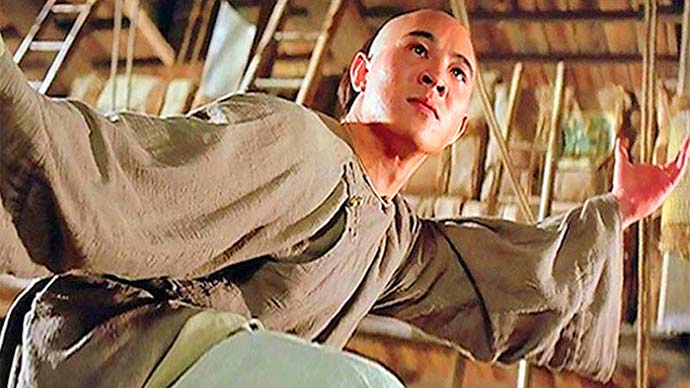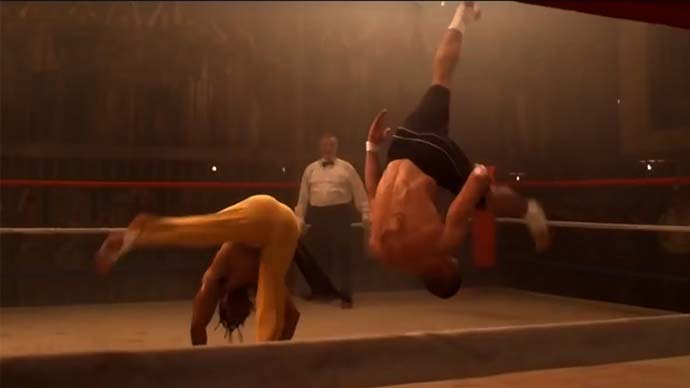Martial arts don’t only exist to make films more action-packed. There are entire philosophies and ideologies that separate different martial arts from each other, and some of those have become the main subjects of movies that delve into their rich histories and disciplines. Beneath all the unique martial arts featured in films are the different masters and schools of each style, plus the style’s significance to the culture of its originating country. Plus, there are the actors and actresses who bring their signature martial arts to life on the big screen. Here are the most famous and popular martial arts styles featured in movies and the significant differences to each one.
8. Jeet Kune Do (Enter the Dragon)
You probably already know about Bruce Lee and his iconic martial arts films, including 1972’s The Way of the Dragon and 1973’s Enter the Dragon. But you may not know that he conceived, developed, and taught a new martial arts style called Jeet Kune Do. Said to be based on Lee’s real-life combat experience, he formulated a style that adapts to whatever situation he’s in. The book Tao of Jeet Kune Do was published after Lee’s death, consisting of his “core writings” about the Jeet Kune Do philosophy, which were written during times when he was resting due to injury. One of the main principles of Jeet Kune Do is the iconic phrase, “Be like water.” It teaches one to be flexible and adaptable in every situation, preventing you from becoming stuck in a single mindset, goal, or style.
7. Drunken Fist (Drunken Master)
Drunken Fist is a collection of martial arts styles that imitate drunkenness. From its unstable movements to unpredictable punches and kicks, this style is very unique and is often used for comedy, as seen in Jackie Chan’s iconic film Drunken Master. There are many forms and styles to this art, including the Daoist style, which was featured in Chan’s film as the “Eight Drunken Immortals” style. The basic hand gesture resembles one holding a cup, with the wrists used for striking and the fingers for grabbing. Another element that makes the Drunken Fist seemingly arbitrary is how the torso bends and twists in almost all directions with sudden changes in momentum, making it a good stance for evading attacks.
6. Aikido (Belly of the Beast)
Aikido is a martial arts style that redirects an opponent’s force back at them, which is known to be a very effective form of self-defense. Aikido involves catching an attacker’s punches or kicks, adding or changing the attack’s momentum, then putting the attacker to the ground. In a scene from 2003’s Belly of the Beast, Steven Seagal—an actor who has a 7th-dan black belt in Aikido in real-life—catches his opponent’s attack and sends them spinning mid-air before falling to the ground.
5. Kenjutsu (Rurouni Kenshin)
Kenjutsu pertains to Japanese sword techniques that originated way back in feudal Japan from the samurai class. Today, practitioners observe safety when practicing and performing kenjutsu (e.g. in kendo, practitioners wear body armor and use bamboo swords). There are many films that feature kenjutsu, such as Rurouni Kenshin and its sequels in which Takeru Satoh plays the role of Himura Kenshin. There are also fight scenes in the film Kill Bill which include kenjutsu.
4. Wing Chun (Ip Man)
Wing Chun is a martial arts style that focuses on self-defense and requires fast arm movements and strong legs. Wing Chun is founded on a set of principles that include “softness” and “relaxation,” in which practitioners deliver hard and destructive blows that come from a soft and relaxed stance. In the Ip Man films, Donnie Yen plays the titular character who was the master of Wing Chun. Bruce Lee was also a practitioner of Wing Chun when he was a student, back when he trained under Ip Man.
3. Muay Thai (Ong Bak)
Muay Thai is a martial arts style that originated in the country of Thailand and is widely known as Thai boxing. It’s sometimes also referred to as the “art of eight limbs” because this combat style doesn’t only involve the hands but also the elbows, knees, and shins. Muay Thai involves kicks, punches, grapples, and clinches with direct force and violent strikes. It’s now popularly used in combat sports like kickboxing and mixed martial arts (but with padded gloves). What separates Muay Thai from other forms of kickboxing is its scoring system. Whereas kickboxing has a four-point striking system, Muay Thai has an eight-point system that includes knees and elbows. The film Ong-Bak: The Thai Warrior stars the real-life Thai martial artist Tony Jaa, who portrays an ancient form of Muay Thai called Muay Boran. Jaa performed his own stunts without props’ assistance, which made the action and the violence look incredibly real.
2. Kung Fu (Once Upon a Time in China)
Kung Fu is probably the most popular and widely used name for martial arts in film, not only because it delivers elegant and appealing choreography, but also because it has a rich history. There’s a long list of Kung Fu substyles, like the animal-themed stances of Shaolin Kung Fu (like the Tiger Claw) to the not-so-ordinary styles of the Drunken Fist and the popular Wing Chun. Kung Fu has been featured in many movies, but one of the most iconic films remains 1991’s Once Upon a Time in China in which Jet Li plays the role of martial artist Wong Fei-hung.
1. Capoeira (Undisputed III: Redemption)
Capoeira is a martial arts style that was developed and practiced by African slaves in the 16th century as a way to survive against armed and mounted enemies. It originated from ritual combat and involves acrobatic skills, kicks, and leg sweeps. You’ve probably seen capoeira fight scenes in movies. It’s visually distinct because it looks like street breakdancing as it incorporates flips, somersaults, cartwheels, and more. Unlike most martial arts, capoeira is extremely freestyle with no fixed stances or positions. Not many films have centered on the art of capoeira, but several movies have included capoeira in their fight scenes as contrast against their protagonists’ own martial arts styles. Notable scenes include the match-up between Muay Thai and Capoeira in 2005’s The Protector where Tony Jaa fights Lateef Crowder. Crowder makes another capoeira appearance in 2010’s Undisputed III: Redemption as a prison fighter character. Read next: How action movies changed in the 21st century

